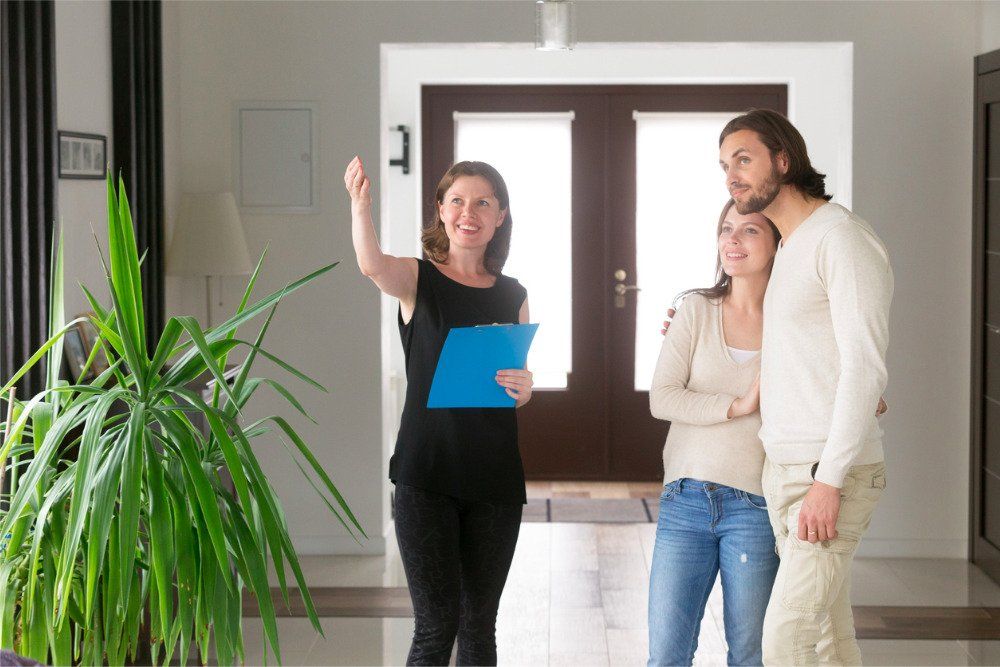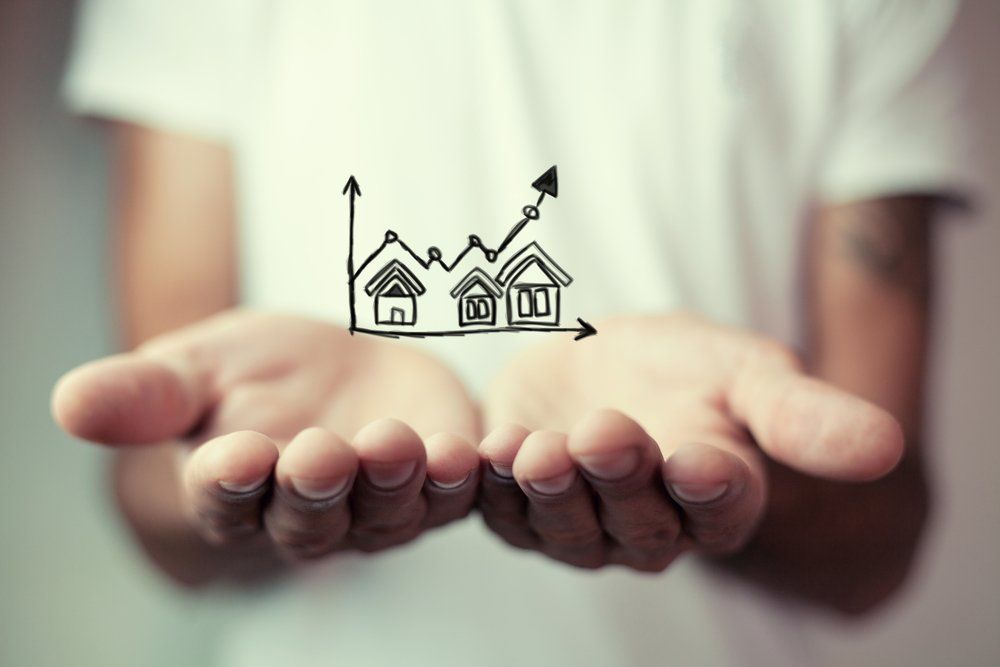Comparing the 6 Largest Kansas City Area School Districts
[vc_row][vc_column][vc_column_text]Whenever we are helping clients purchase a new home, school districts are often top of mind. The school district in which you reside in is important not only for your family, but for resale value on down the line. For the benefit of our clients, especially those new to the Kansas City area, we thought we’d go through the area’s larger districts and provide some highlights of each.According to Niche.com, the following are the largest districts serving the KC area in 2018 based on student enrollment using data from the U.S. Department of Education.[/vc_column_text][/vc_column][/vc_row][vc_row][vc_column width=”1/2″][vc_column_text css=”.vc_custom_1596831069439{margin-top: 0px !important;margin-bottom: 15px !important;}”]
Olathe (KS) Unified School District
[/vc_column_text][vc_single_image image=”2982″ alignment=”center” css=”.vc_custom_1596832105103{padding-right: 10px !important;padding-left: 10px !important;}”][vc_btn title=”Find Homes in the Olathe (KS) Unified School District” color=”turquoise” link=”url:http%3A%2F%2Fcamijoneshomes.com%2Fhomes-for-sale-results%2F%3FboardId%3D76%26location%3D%26propertyType%3DSFR%252CCND%26status%3Dactive%26minListPrice%3D%26maxListPrice%3D%26squareFeet%3D%26bedrooms%3D0%26bathCount%3D0%26_openHomesOnlyYn%3Don%26_dateRange%3Don%26_virtualTourYn%3Don%26_reoyn%3Don%26_golfCourseYn%3Don%26_basementYn%3Don%26_horsePropertyYn%3Don%26_fireplaceYn%3Don%26_newConstructionYn%3Don%26_poolYn%3Don%26yearBuilt%3D%26lotAcres%3D%26garageSpaces%3D%26styleLike%255B%255D%3D%26schoolDistrict%255B%255D%3DOlathe%26_areaAndSearch%3Don” css=”.vc_custom_1625864416426{margin-top: 10px !important;margin-bottom: 10px !important;}”][vc_column_text]Olathe boasts 48 schools and just over 30,000 students enrolled. It is the second-fastest-growing district in Kansas. Olathe has racked up an impressive 17 Blue Ribbon School Awards and cites a 94% graduation rate. Olathe Unified is generally bounded by 159th Street to the south, Cedar Niles Road to the west, 87th Street to the north, and Quivira to the east. The newest high school, Olathe West, cost over $80 million to build and more closely resembles a business start-up space or college campus.[/vc_column_text][/vc_column][vc_column width=”1/2″][vc_column_text css=”.vc_custom_1596831022360{margin-top: 20px !important;}”]
| Schools | 35 Elementary Schools9 Middle Schools4 High Schools |
| Students | 30,022 |
| Graduation Rate | 94% |
| Average SAT Score | 1310 |
| Average ACT Score | 27 |
| Reading Proficiency | 46% |
| Math Proficiency | 42% |
| Teacher Ratio | 14:1 |
| Median Home Value | $224,000 |
[/vc_column_text][/vc_column][/vc_row][vc_row][vc_column][vc_separator color=”custom” border_width=”2″ accent_color=”#d70080″][/vc_column][/vc_row][vc_row][vc_column width=”1/2″][vc_column_text css=”.vc_custom_1596832418988{margin-top: 0px !important;margin-bottom: 15px !important;}”]
Shawnee Mission (KS) School District
[/vc_column_text][vc_single_image image=”2983″ alignment=”center” css=”.vc_custom_1596832399174{padding-right: 10px !important;padding-left: 10px !important;}”][vc_btn title=”Find Homes in the Shawnee Mission (KS) School District” color=”turquoise” link=”url:http%3A%2F%2Fcamijoneshomes.com%2Fhomes-for-sale-results%2F%3FboardId%3D76%26location%3D%26propertyType%3DSFR%252CCND%26status%3Dactive%26minListPrice%3D%26maxListPrice%3D%26squareFeet%3D%26bedrooms%3D0%26bathCount%3D0%26_openHomesOnlyYn%3Don%26_dateRange%3Don%26_virtualTourYn%3Don%26_reoyn%3Don%26_golfCourseYn%3Don%26_basementYn%3Don%26_horsePropertyYn%3Don%26_fireplaceYn%3Don%26_newConstructionYn%3Don%26_poolYn%3Don%26yearBuilt%3D%26lotAcres%3D%26garageSpaces%3D%26styleLike%255B%255D%3D%26schoolDistrict%255B%255D%3DShawnee%2BMission%26_areaAndSearch%3Don” css=”.vc_custom_1625864455000{margin-top: 10px !important;margin-bottom: 10px !important;}”][vc_column_text]Shawnee Mission has just under 28,000 students in its 43 schools. The district is located in northeast Johnson County, KS. There are 5 high schools in the district. The district has consistently been ranked among the finest school districts in the nation earning praise locally, regionally, and nationally.[/vc_column_text][/vc_column][vc_column width=”1/2″][vc_column_text css=”.vc_custom_1596831433305{margin-top: 20px !important;}”]
| Schools | 33 Elementary Schools5 Middle Schools5 High Schools |
| Students | 27,590 |
| Graduation Rate | 90% |
| Average SAT Score | 1290 |
| Average ACT Score | 27 |
| Reading Proficiency | 49% |
| Math Proficiency | 44% |
| Teacher Ratio | 16:1 |
| Median Home Value | $165,307 |
[/vc_column_text][/vc_column][/vc_row][vc_row][vc_column][vc_separator color=”custom” border_width=”2″ accent_color=”#d70080″][/vc_column][/vc_row][vc_row][vc_column width=”1/2″][vc_column_text css=”.vc_custom_1596831734012{margin-top: 0px !important;margin-bottom: 15px !important;}”]
Blue Valley (KS) Unified School District
[/vc_column_text][vc_single_image image=”2988″ alignment=”center” css=”.vc_custom_1596833392286{padding-right: 10px !important;padding-left: 10px !important;}”][vc_btn title=”Find Homes in the Blue Valley (KS) Unified School District” color=”turquoise” link=”url:http%3A%2F%2Fcamijoneshomes.com%2Fhomes-for-sale-results%2F%3FboardId%3D76%26location%3D%26propertyType%3DSFR%252CCND%26status%3Dactive%26minListPrice%3D%26maxListPrice%3D%26squareFeet%3D%26bedrooms%3D0%26bathCount%3D0%26_openHomesOnlyYn%3Don%26_dateRange%3Don%26_virtualTourYn%3Don%26_reoyn%3Don%26_golfCourseYn%3Don%26_basementYn%3Don%26_horsePropertyYn%3Don%26_fireplaceYn%3Don%26_newConstructionYn%3Don%26_poolYn%3Don%26yearBuilt%3D%26lotAcres%3D%26garageSpaces%3D%26styleLike%255B%255D%3D%26schoolDistrict%255B%255D%3DBlue%2BValley%26_areaAndSearch%3Don” css=”.vc_custom_1625864472651{margin-top: 10px !important;margin-bottom: 10px !important;}”][vc_column_text]22,600 students call Blue Valley home and attend its 34 schools, five of which are high schools. Blue Valley is 91-square miles and the boundaries include I-435 to the north, State Line Road to the east, 215th Street to the south and a western border that goes between Quivira and Pflumm. Recently, the Blue Valley Southwest debate team concluded their record-breaking season at the National Speech and Debate Tournament with a historic national championship.[/vc_column_text][/vc_column][vc_column width=”1/2″][vc_column_text css=”.vc_custom_1596831844725{margin-top: 20px !important;}”]
| Schools | 20 Elementary Schools9 Middle Schools5 High Schools |
| Students | 22,793 |
| Graduation Rate | 97% |
| Average SAT Score | 1380 |
| Average ACT Score | 29 |
| Reading Proficiency | 63% |
| Math Proficiency | 57% |
| Teacher Ratio | 14:1 |
| Median Home Value | $261,200 |
[/vc_column_text][/vc_column][/vc_row][vc_row][vc_column][vc_separator color=”custom” border_width=”2″ accent_color=”#d70080″][/vc_column][/vc_row][vc_row][vc_column width=”1/2″][vc_column_text css=”.vc_custom_1596832441122{margin-top: 0px !important;margin-bottom: 15px !important;}”]
Kansas City, Kansas Public Schools
[/vc_column_text][vc_single_image image=”2985″ alignment=”center” css=”.vc_custom_1596833422639{padding-right: 10px !important;padding-left: 10px !important;}”][vc_btn title=”Find Homes in the Kansas City, Kansas Public School District” color=”turquoise” link=”url:http%3A%2F%2Fcamijoneshomes.com%2Fhomes-for-sale-results%2F%3FboardId%3D76%26location%3D%26propertyType%3DSFR%252CCND%26status%3Dactive%26minListPrice%3D%26maxListPrice%3D%26squareFeet%3D%26bedrooms%3D0%26bathCount%3D0%26_openHomesOnlyYn%3Don%26_dateRange%3Don%26_virtualTourYn%3Don%26_reoyn%3Don%26_golfCourseYn%3Don%26_basementYn%3Don%26_horsePropertyYn%3Don%26_fireplaceYn%3Don%26_newConstructionYn%3Don%26_poolYn%3Don%26yearBuilt%3D%26lotAcres%3D%26garageSpaces%3D%26styleLike%255B%255D%3D%26schoolDistrict%255B%255D%3DKansas%2BCity%2BKs%26_areaAndSearch%3Don” css=”.vc_custom_1625864494277{margin-top: 10px !important;margin-bottom: 10px !important;}”][vc_column_text]There are over 23,000 students enrolled in the urban district’s 46 schools. With a Head Start program, three preschools, 33 elementary schools, 8 middle schools, and 5 high schools, the district serves a wonderfully diverse mixture of students. A remarkable 75 different languages are spoken in the homes of KCKPS students.[/vc_column_text][/vc_column][vc_column width=”1/2″][vc_column_text css=”.vc_custom_1596832497425{margin-top: 20px !important;}”]
| Schools | 33 Elementary Schools8 Middle Schools5 High Schools |
| Students | 23,292 |
| Graduation Rate | 74% |
| Average SAT Score | 960 |
| Average ACT Score | 20 |
| Reading Proficiency | 14% |
| Math Proficiency | 11% |
| Teacher Ratio | 14:1 |
| Median Home Value | $91,600 |
[/vc_column_text][/vc_column][/vc_row][vc_row][vc_column][vc_separator color=”custom” border_width=”2″ accent_color=”#d70080″][/vc_column][/vc_row][vc_row][vc_column width=”1/2″][vc_column_text css=”.vc_custom_1596832627145{margin-top: 0px !important;margin-bottom: 15px !important;}”]
North Kansas City (MO) School District
[/vc_column_text][vc_single_image image=”2986″ alignment=”center” css=”.vc_custom_1596832662849{padding-right: 10px !important;padding-left: 10px !important;}”][vc_btn title=”Find Homes in the North Kansas City (MO) School District” color=”turquoise” link=”url:http%3A%2F%2Fcamijoneshomes.com%2Fhomes-for-sale-results%2F%3FboardId%3D76%26location%3D%26propertyType%3DSFR%252CCND%26status%3Dactive%26minListPrice%3D%26maxListPrice%3D%26squareFeet%3D%26bedrooms%3D0%26bathCount%3D0%26_openHomesOnlyYn%3Don%26_dateRange%3Don%26_virtualTourYn%3Don%26_reoyn%3Don%26_golfCourseYn%3Don%26_basementYn%3Don%26_horsePropertyYn%3Don%26_fireplaceYn%3Don%26_newConstructionYn%3Don%26_poolYn%3Don%26yearBuilt%3D%26lotAcres%3D%26garageSpaces%3D%26styleLike%255B%255D%3D%26schoolDistrict%255B%255D%3DNorth%2BKansas%2BCity%26_areaAndSearch%3Don” css=”.vc_custom_1625864511588{margin-top: 10px !important;margin-bottom: 10px !important;}”][vc_column_text]Enrollment is right at 20,000 students in the district’s 31 schools. NKC Schools is situated just north of Kansas City’s downtown. The school district offers optional Pre-K and before/after school programs, expansive gifted/honors opportunities, career and professional academies, A+ certified high schools, as well as nationally recognized adult and community education programs for learners of all ages.[/vc_column_text][/vc_column][vc_column width=”1/2″][vc_column_text css=”.vc_custom_1596832728252{margin-top: 20px !important;}”]
| Schools | 22 Elementary Schools5 Middle Schools4 High Schools |
| Students | 20,763 |
| Graduation Rate | 96% |
| Average SAT Score | 1200 |
| Average ACT Score | 24 |
| Reading Proficiency | 54% |
| Math Proficiency | 52% |
| Teacher Ratio | 15:1 |
| Median Home Value | $139,735 |
[/vc_column_text][/vc_column][/vc_row][vc_row][vc_column][vc_separator color=”custom” border_width=”2″ accent_color=”#d70080″][/vc_column][/vc_row][vc_row][vc_column width=”1/2″][vc_column_text css=”.vc_custom_1596832814075{margin-top: 0px !important;margin-bottom: 15px !important;}”]
Lee’s Summit (MO) R-7 School District
[/vc_column_text][vc_single_image image=”2989″ alignment=”center” css=”.vc_custom_1596833454234{padding-right: 10px !important;padding-left: 10px !important;}”][vc_btn title=”Find Homes in the Lee’s Summit (MO) R-7 School District” color=”turquoise” link=”url:http%3A%2F%2Fcamijoneshomes.com%2Fhomes-for-sale-results%2F%3FboardId%3D76%26location%3D%26propertyType%3DSFR%252CCND%26status%3Dactive%26minListPrice%3D%26maxListPrice%3D%26squareFeet%3D%26bedrooms%3D0%26bathCount%3D0%26_openHomesOnlyYn%3Don%26_dateRange%3Don%26_virtualTourYn%3Don%26_reoyn%3Don%26_golfCourseYn%3Don%26_basementYn%3Don%26_horsePropertyYn%3Don%26_fireplaceYn%3Don%26_newConstructionYn%3Don%26_poolYn%3Don%26yearBuilt%3D%26lotAcres%3D%26garageSpaces%3D%26styleLike%255B%255D%3D%26schoolDistrict%255B%255D%3DLee%257Eap%255Es%2BSummit%26_areaAndSearch%3Don” css=”.vc_custom_1625864530489{margin-top: 10px !important;margin-bottom: 10px !important;}”][vc_column_text]Lee’s Summit claims just over 18,000 students at its 26 schools. The school district has met all criteria to earn the state’s top designation for academic achievement — accredited with distinction. The R-7 School District serves Lee’s Summit, Greenwood, Lake Lotawana, Lake Winnebago, areas of Raintree Lake, area of Lakewood and some outlying rural areas, with a small portion of the district extending into Cass County and Kansas City.[/vc_column_text][/vc_column][vc_column width=”1/2″][vc_column_text css=”.vc_custom_1596832916830{margin-top: 20px !important;}”]
| Schools | 19 Elementary Schools4 Middle Schools3 High Schools |
| Students | 18,410 |
| Graduation Rate | 95% |
| Average SAT Score | 1280 |
| Average ACT Score | 26 |
| Reading Proficiency | 62% |
| Math Proficiency | 56% |
| Teacher Ratio | 15:1 |
| Median Home Value | $210,400 |
[/vc_column_text][/vc_column][/vc_row][vc_row][vc_column][vc_separator color=”custom” border_width=”2″ accent_color=”#d70080″][/vc_column][/vc_row][vc_row][vc_column][vc_column_text]Thinking of listing your home and making a move? Let our team help you! We make the listing process easy and will have you on the road to selling your beautiful home in no time! Give us a call today! You can reach our team at 913.402.2550. Want to come see us? Our office is conveniently located at 5000 W. 135th St. Leawood, KS 66224.In the meantime, please like us on Facebook and follow us on Instagram![/vc_column_text][/vc_column][/vc_row]






















